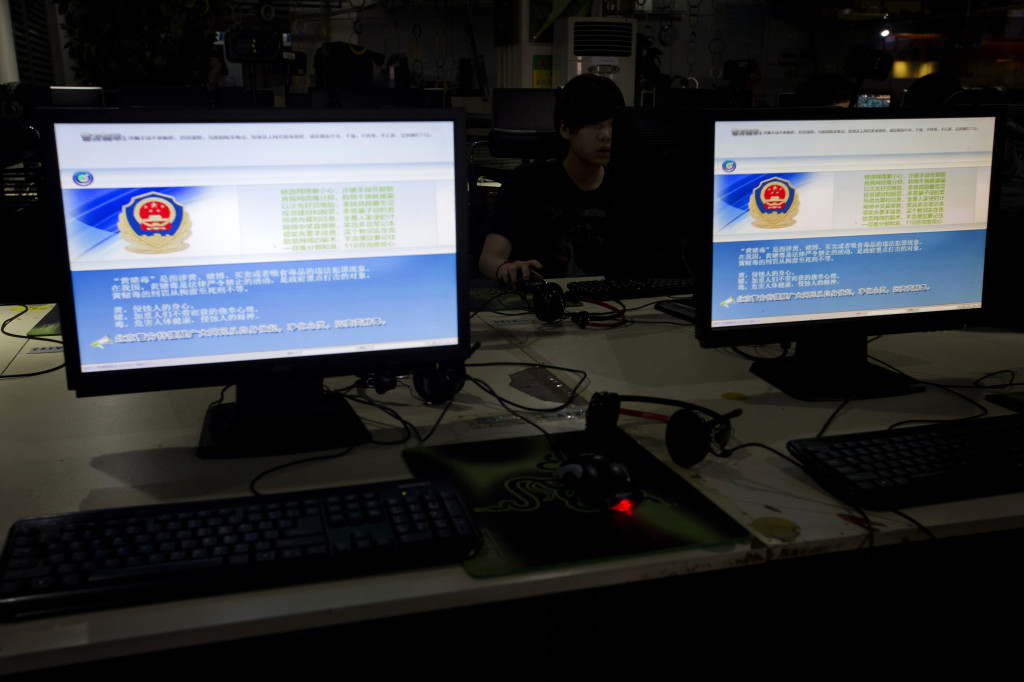
A computer user sits near displays with a message from the Chinese police on the proper use of the internet at an internet cafe in Beijing, China, Monday, Aug. 19, 2013.
China says its campaign against what it calls “online rumors” has really cleaned up the internet.
Ren Xianliang, deputy director of China’s State Internet Information Office, told reporters in Beijing Thursday, “The rumors have declined significantly, but this hasn’t affected the normal flow of information.”
Last September, China expanded existing censorship laws by announcing tough new penalties for anyone spreading “rumors” over the internet–that is, criticizing the government or its policies. In fact, it isn’t enough to simply tweet “rumors.” In China, you can now go to jail if you post what the government deems as “defamatory” tweets and they are viewed by 5,000 Internet users and/or retweeted more than 500 times.
Worse, writes Harvard business professor Christopher Marquis, you can go to jail if you have more than 50,000 followers.
This is a pretty low threshold, says Human Rights Watch, when you consider that popular topics on weibo microblogs can be reposted thousands of times.
“Although China’s cyberspace has always been tightly controlled and censored, the new criminal penalties for online expression are a direct assault on the relatively freer space generated by social media,” said Sophie Richardson, HRW China director.
“The government claims these new penalties focus only on malicious and libelous content, but critics of the government and whistleblowers are the real target,” Richardson said.
China has blocked a variety of foreign websites, including Twitter, YouTube and Facebook. Chinese social media services such as Weibo.com are flourishing, but users–understandably–regularly self-censor. According to Global Voices Advocacy, over the past three months alone, more than 103,673 Sina Weibo users been punished for violating the Weibo “community code of practice.”
Weibo’s 56 million active daily users post about 100 million posts a day. Weibo is responsible for deleting all content deemed offensive. If you wonder how in the world it can possibly track that much content, you might want to read this September report from Reuters.
As it turns out, Sina Corp, the internet firm that runs the micro-blogging site, pays 150 young university graduates to read about 3,000 posts per hour, 12 hours a day, around the clock, for which they’re paid less than $500 a month.
